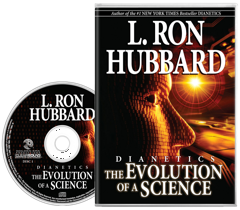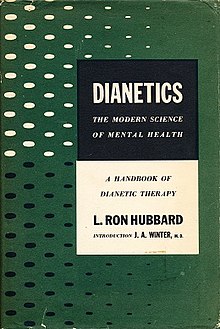The Basic Principles Of Dianetics
Wiki Article
The Best Strategy To Use For Dianetics
Table of ContentsThe 25-Second Trick For DianeticsSome Known Details About Dianetics Some Ideas on Dianetics You Need To KnowWhat Does Dianetics Mean?
I couldn't ever not intend to obtain anything that comes to mind for you- if it was or else, I would not be sitting here with you, doing this. I not just can never ever have a trouble, or not wish to hear something that comes to mind for you, however I'm completely eager to recognize every concept, every thought, every image or sensation that emerges or manifests for you- do not ever think or else, and if for one reason or another you do, please just allow me understand! Often, you may have a thought, and photo, idea or incident appear that does not seem to respond to the concern, or associate with it, however nevertheless, constantly do tell me about it, and as we proceed, the significance will emerge for you.This is fundamental in the basis of processing, and the topic of this discussion: the standard functions of the therapist and the client: The fundamental role of the therapist is, contrary to "standard training", not to manage, which means to impose and/or prevent, however to instead function from the basis of EMPOWERING THE CUSTOMER.

More About Dianetics
John Mcmasters expressed this standard truth splendidly well in among his lectures on Power handling, in which he describes how he was asked what this "special propensity" was that he had for giving such wonderful sessions; he had to assume about that for a minute, and detected that it was what he had not been doing, as well as what he was doing: he had not been assessing, evaluating, computer, or actually, producing any type of thoughts, not to mention spoken expressions, after offering the command and while awaiting the PC to finish their solution to their contentment; he was, simply and only, being present with the PC, and completely interested.The function of the counselor, demonstrated; that was his "unique knack". I have had my own experience which instructed me this well, extremely early in the video game. In 1982, having recently completed my training and internship on New Era Dianetics, I was running this on a COMPUTER, and there was a factor in the session where (being a bit damp behind the ears not yet having several hours under my belt as a professional auditor) the PC appeared to be "taking too long" to reveal anything verbally after I gave him YOURURL.com a command.
This secret ended up being one of the most valuable contribution that John ever before made to the topic of treatment or auditing (Dianetics). In my simple opinion, it is the greatest payment that any person has actually ever made to these subjectsthe application is entirely non-judgemental, non-evaluative, and lacking any type of tip, recommendations or opinion.no preconceived agenda for people, or 'degrees' that they need to do
In Scientology we prided ourselves on not assessing for people. All that truly meant was that the auditor did not Vocally assess for the Computer in session.
The Basic Principles Of Dianetics

Anybody that had ever before seen John audit could not assist but observe a distinct top quality in his auditing."The customer's standard role is to be there with the purpose of relocating the direction of their spiritual goals, and to openly and fully express and experience whatever manifests for them in addressing the questions and implementing the instructions in the processing.
This is something to procedure as needed. However additionally, people often have previous experience and/or indoctrination in auditing/processing which, in some methods, and to some extent, actually published here misdirects them into mindsets, concepts and actions patterns that protect against the full awareness of these duties, and so they will have a tendency to prevent the expressing of what comes to mind, as in the examples provided over. * The very first, and maybe leading instances of mis-indoctrination leading to less than completely smooth and effective sessions, can be found in certain aspects of the training routines, or "TR's":"TR's" are typically a person's first, or a minimum of early, experience in Scientology, and while I will go on to explain what I view as the flaws in concept and practice, however, often tend to be substantially healing, done as they are offered (Hubbard urges that "TR's are not refining, they are training", however factually, they are both processing AND training)
There is no "failing", and no denial of the fact of this being handling. The focus, as it needs to be, is on experiencing the other individual's visibility.
Fascination About Dianetics

Report this wiki page